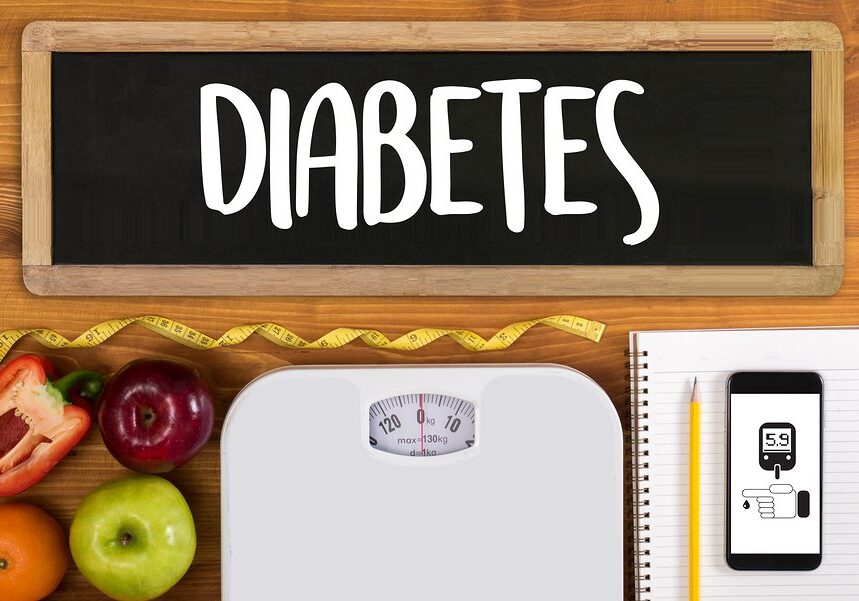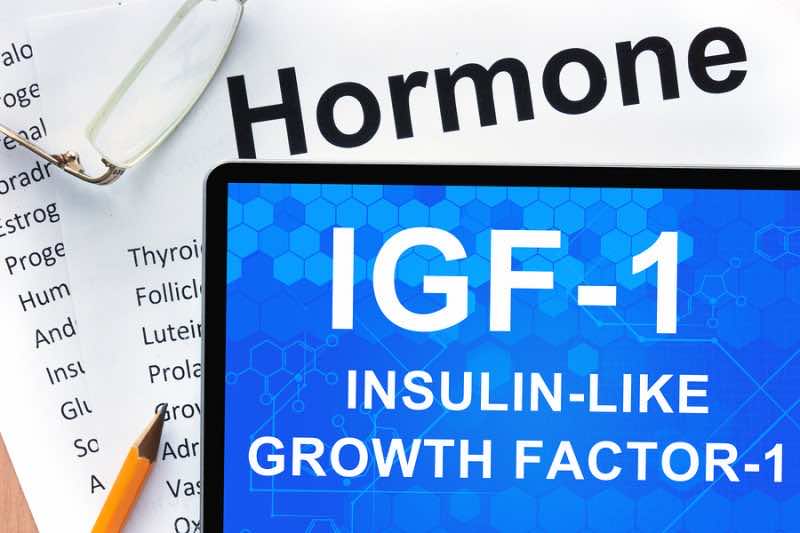Could High Protein Diet Cause Diabetes?
When preventing diabetes, you likely know by now that sugar is the biggest thing to avoid. Consuming high doses of sugar – or processed foods – regularly is the fastest way to land yourself on a one-way path to diabetes. As such, many people are doing a great job eliminating sugar from their menus. They’re…


When preventing diabetes, you likely know by now that sugar is the biggest thing to avoid. Consuming high doses of sugar – or processed foods – regularly is the fastest way to land yourself on a one-way path to diabetes.
As such, many people are doing a great job eliminating sugar from their menus. They’re cutting out candy bars, soda, cake, cookies, and pastries and feasting on whole grains, healthy fats, fruits, vegetables, and lean protein sources.
You think that everything is on track, right?
You might just be surprised…
New research suggests that eating too much protein may increase your risk factor for developing diabetes.
Why is this, and how does it work? And more importantly, what can you do to ensure that the steak, chicken, or fish you eat doesn’t end up with you having to inject insulin for the remainder of your days?
Let’s take a closer look.
The Study
The study that indicates that a higher protein diet may potentially be putting you at risk for related issues is titled ‘Low Protein Intake Is Associated With A Major Reduction in IGF-1, Cancer, and Overall Mortality In The 65 and Younger But Not Older Population.’
Published in the Cell Metabolism Journal, this study noted that when subjects between the ages of 50-65 had a higher protein intake, they also had a 75% increase in their overall mortality levels and a 4-fold increase in cancer death risk.
What’s even more interesting, however, is that in those who were of the ages 65 and beyond, a higher protein intake was associated with the opposite – a lower risk of cancer and mortality.
What’s going on here?
The reason this is occurring is because protein restriction causes a reduction in the circulating levels of GHR-IGF-1 activity in the body. This activity helps reduce many age-related diseases, so by decreasing protein intake when you are of moderate age, you can gain extra protection against these diseases.
As you get older, however, your protein needs may go up to continually be able to produce new and healthy cells. So, at that point in your life, you need to focus on increasing your protein intake.
One additional point that was raised in the study that is interesting to know is that when subjects consumed plant-based protein sources rather than animal-based protein sources in that median age group, the detrimental effects of a higher protein diet were canceled out.
So, really, it appears that a high protein meat-focused diet is what is leading the way to problems here.
Protein And Insulin

With regards to the protein-diabetes connection, many people are under the notion that protein is great for stabilizing blood glucose levels and it’s only carbohydrates that you really need to be concerned yourself with.
While it is true that carbohydrates are the primary macronutrient that can quickly spike blood glucose levels and, therefore, cause insulin to be released by the body, don’t discount the impact proteins can have as well.
While protein doesn’t raise blood sugar considerably, amino acids can break down into glucose in the body and therefore, have an effect. This is more likely to occur in those who are using very high protein diets, however, and who aren’t consuming adequate amounts of carbohydrates or dietary fat in their meal plan.
Since carbohydrates and dietary fat are the two energy-providing nutrients in the diet, if you are low in these two, your body has to turn to an alternate source of fuel for energy.
That source will be a combination of body fat and potentially the incoming protein you eat. Protein is broken down into glucose through a process referred to as gluconeogenesis, and this can cause an increase in blood glucose levels.
Faster-digesting proteins that don’t contain any fat will have a greater impact on blood glucose levels. Whey protein isolate for instance is particularly notable as it is designed to break down as quickly as possible and therefore can have a greater effect on blood sugar levels. This said, whey protein isolate often exerts beneficial effects on your body’s ability to handle insulin and, therefore may be recommended to diabetic individuals according to research published in the American Journal of Clinical Nutrition.
Additionally, most people are taking whey protein isolate around the workout period, it’s actually preferable to spike blood glucose levels, so this is usually not considered a problematic situation.
Further Steps To Reduce Your Risk

Okay, so perhaps you aren’t about to slash your protein intake in half. You are an active individual and know that getting enough protein in your diet is key to repairing and rebuilding lean muscle mass tissue and ensuring you feel your best from workout to workout.
Understandable.
Not everyone wants to adopt a vegetarian diet plan and consume only 50-60 grams of protein per day. If you’re one of those people who don’t want to go this route, there are a few things that you can do to help combat the potentially problematic effects that eating too much protein can have.
1. Load Up On Fresh Fruits And Vegetables
First, make sure that you are consuming adequate levels of fresh fruits and especially vegetables in your diet plan. These foods provide a wide array of antioxidants to your body, which can help combat diseases such as cancer and heart disease. This can in turn, help to offset any of the negative effects that the high protein diet may have had.
While fruits do contain some natural fruit sugar, which may cause a slight increase in blood glucose levels, they also contain a good dose of dietary fiber, which is excellent for stabilizing blood sugar.
Therefore, eat them, but in moderation. Berries are your best bet if you hope to reap maximum antioxidant status and see the lowest overall increase in blood glucose levels.
2. Eat Protein + Fat
The next thing you’ll want to do if minimizing diabetes is a concern for you is to ensure that you are always consuming protein with some form of dietary fat. Dietary fat is the one nutrient that has zero impact on blood glucose levels and will help stabilize your blood sugar in a hurry.
By pairing any protein you do eat with a healthy fat source, you help to negate the spike in blood sugar you may receive from the protein you just consumed.
Try proteins that contain healthy fat on their own, such as salmon, organic free-range eggs, or grass-fed beef, or simply add fat to the protein you are eating, such as cooking your chicken in olive oil, adding a tablespoon of almond butter with your whey protein shake or adding some avocado alongside your white fish.
Doing so will also help ensure that you are taking in enough energy from the healthy fats to help offset the risk that you are breaking down protein for fuel in the first place, causing that gluconeogenesis reaction to occur.
3. Keep A Regular and Frequent Meal Schedule
Finally, make extra effort to keep a regular and frequent meal schedule. You want to avoid eating very large doses of protein all at once. Many people who eat just two or three meals a day will sit down to a large steak dinner and consume upwards of 70 or 80 grams of protein in that single sitting!
That’s just more protein than anyone ever needs. Your body is only able to process so much protein at once, so if you are oversupplying it, you’re only increasing the chances that some of that protein is going to be converted into glucose levels, and possibly eventually end up as body fat storage.
By eating more frequently during the day and breaking your calorie intake up into five or six meals instead, taking in 15-30 grams of protein at each, you’ll do a better job at keeping your blood sugar levels stable.
Now, these three things said, they will all help you reduce your risk of diabetes and cancer. But yet, there is one thing you could be doing that will be even better…
An Even Smarter Solution…
 One of the biggest reasons people need to be consuming so much protein in their diet is because their body is not effectively breaking down the protein, releasing the amino acids that are then going to carry out the many roles that protein has.
One of the biggest reasons people need to be consuming so much protein in their diet is because their body is not effectively breaking down the protein, releasing the amino acids that are then going to carry out the many roles that protein has.
Remember, it’s not protein your body needs – it’s the end product: amino acids. As long as the amino acid needs are met, you’ll be just fine.
And the real truth of the matter is that you don’t need an incredibly high amount of amino acids each day. You just need to be getting in a strong dose of high-quality amino’s that your body can put to use immediately.
The best way to do that is to ensure digestion is up to par. Sadly, many people lack the specific digestive enzymes that are required in order to break down protein efficiently and get the amino acids that their body needs.
So the real trick here is not trying to find ways to minimize the damage that a high-protein diet creates so that you can still continue to use that high-protein diet. No, that’s basically just covering up the problem.
The real ticket to success is figuring out how to make sure that your body can become optimized on a lower protein diet so that you can side-step eating so much in the first place – and avoid all the detrimental effects that come with it.
For that, you need digestive enzymes.
—– > Click here to learn more about how eating a high-protein diet is actually worse than smoking twenty cigarettes a day and how digestive enzymes could quite possibly change your future.








